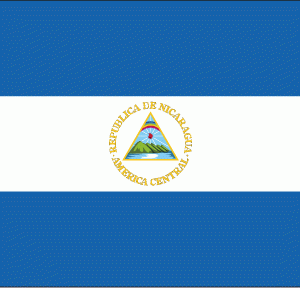- Vlog 48-This SMALL TOWN in Matagalpa has BEAUTIFUL HOUSES!Posted 1 year ago
- Vlog 47-Driving TOUR in the North City of Nicaragua “ESTELI”Posted 1 year ago
- Vlog 46- Leon during Holy Week A GREAT TIME TO VISIT!Posted 1 year ago
- Vlog 45- Moving to Nicaragua – How to Relocate SuccessfullyPosted 1 year ago
- Vlog 44-Fireworks in Leon NicaraguaPosted 1 year ago
- Vlog 43- Is it true Why No Rental Properties in Poneloya & Las Penitas NicaraguaPosted 1 year ago
- Vlog 42-This is the TRAFFIC at NIGHT in Esteli, Nicaragua.Posted 1 year ago
- Vlog 41- Cultural SHOCK in Reverse Trip to the USA from NicaraguaPosted 1 year ago
- Vlog 40-Is U.S Real Estate Market impacting Nicaragua?Posted 1 year ago
- Vlog 38- Why choosing an expensive area in Nicaragua can be a mistakePosted 1 year ago
Moving to Nicaragua and Becoming a Resident

By Julie Goodliffe
Like lots of people facing retirement, we carefully explored our options. We are Australians and Australia is the second most expensive country in which to live – it’s poisonously expensive. Certainly it’s a great country with all the “freedoms” of a modern democracy; ie the freedom to do exactly what one is told.
We spent twelve years sailing our yacht around the world so living abroad was normal for us and we almost always felt very free. Most Australians moving abroad , move to various SE Asian countries or Vanuatu, a nearby tax haven. We have spent a lot of time in those regions and nothing about them would inspire us to retire there. In fact in most of the popular places, foreigners are not permitted to own property. However, when we came to Latin America we looked into retirement in various countries. Ultimately, we chose Nicaragua because of the diversity of the country, its safety and nice property was legally available though we did look at Spain (EU too many rules and taxes).
Hence we bought a property and prepared to move here and become legal residents. Firstly we contacted a lawyer regarding the residency process but somehow our emails went into spam and we weren’t getting any response. At around that time, we saw Patricia Sanchez mentioned on Nica Nuggets as a possible resindency facilitator so we contacted her. She immediately responded and guided us through the process.
Having the correct documents, properly notarized and apostiled in the country of origin is of paramount importance for a smooth process. This can be tedious! In our case it was extra tedious because my husband was born in England, so he had to send his birth certificate to England to be apostiled. As we were married in Reno, Nevada, we had to apply for a certified copy of our marriage certificate, then send it to the Secretary of State of Nevada for an apostile (cost $20.00)
Apart from the documents already mentioned, we needed a police clearance, a medical certificate, proof of income and my husband’s original naturalization certificate. Any documents not signed by a government official need to be signed by a public notary (at least in Australia) before they can be apostiled. The cost in Australia is $69.00 per page for a notary and $69.00 per page for the apostile.
Patricia met us on our first day here, checked everything was in order and took our documents which she translates as part of the service. She then works with a lawyer and within a couple of weeks we accompanied her to immigration to present the documents. At about two months, we went with her for another interview and our residency was approved with cedula pending. Before our six months was up, cedula (6000 cords each) was available.
Patricia’s fees were very reasonable; we paid 50% when we handed over the documents and the balance when the documents were presented. She would have accompanied us to the immigration office at Metro Centro to renew our visas at 90 days, but we chose to do it ourselves. She was with us every step of the way and we can highly recommend her. Her email address is [email protected] and phone 8950-8211.
She can also do your customs shipment and adoptions.
Just remember, though, if your documents are not in order , she can’t do miracles.
People ask if we are happy with our choice to make Nicaragua our home – the answer is a big resounding YES! We actually had a couple of medical emergencies which I think were dealt with promptly and in the case of my husband, possibly saving his life. But that’s another story for another day!
Also, for all those people who lament about some of the challanges – this place is a walk in the park compared to some countries.
Julie Goodliffe

10 Comments